This Week in Freethought History (March 31-April 6)
Here’s your Week in Freethought History: This is more than just a calendar of events or mini-biographies – it’s a reminder that, no matter how isolated and alone we may feel at times, we as freethinkers are neither unique nor alone in the world.
 Last Sunday, March 31, but in 1596, French mathematician and philosopher René Descartes was born. In his treatise on physics and cosmology entitled The World, or Treated Light, he claimed that the earth was only one part of a uniform universe obeying uniform physical laws. As a philosopher, Descartes reasoned from the principle that nothing can be believed to be true until it is evidently true (empiricism). The only assumption he would allow was his own existence, hence his most famous quote from his most famous work, the Discourse on Method of 1637. When he stipulated cogito ergo sum (“I think, therefore I am”), he established the first principles of the Cartesian system of philosophy, which eventually killed and buried the Scholasticism taught to him by the Jesuits. He had nearly completed The World, or Treated Light in 1633 when news reached him of Galileo’s house arrest in Italy. This frightened him because both Descartes and Galileo supported the sun-centered arrangement of the cosmos. Though he professed all his life to be an orthodox Catholic, after 20 years in Holland, official suspicions were mounting against the Father of Modern Philosophy, so in the last year of his life, Descartes accepted an invitation from Queen Christina to reside in Sweden.
Last Sunday, March 31, but in 1596, French mathematician and philosopher René Descartes was born. In his treatise on physics and cosmology entitled The World, or Treated Light, he claimed that the earth was only one part of a uniform universe obeying uniform physical laws. As a philosopher, Descartes reasoned from the principle that nothing can be believed to be true until it is evidently true (empiricism). The only assumption he would allow was his own existence, hence his most famous quote from his most famous work, the Discourse on Method of 1637. When he stipulated cogito ergo sum (“I think, therefore I am”), he established the first principles of the Cartesian system of philosophy, which eventually killed and buried the Scholasticism taught to him by the Jesuits. He had nearly completed The World, or Treated Light in 1633 when news reached him of Galileo’s house arrest in Italy. This frightened him because both Descartes and Galileo supported the sun-centered arrangement of the cosmos. Though he professed all his life to be an orthodox Catholic, after 20 years in Holland, official suspicions were mounting against the Father of Modern Philosophy, so in the last year of his life, Descartes accepted an invitation from Queen Christina to reside in Sweden.
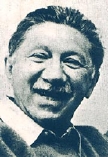 Last Monday, April 1, but in 1909, American psychologist Abraham Maslow was born. His lightly educated parents encouraged him to study law, but Maslow abandoned that curriculum, and the state of New York, to study psychology at the University of Wisconsin-Madison. There he earned his BA (1930), his MA (1931) and his Ph.D. (1934). He returned to New York and taught at Brooklyn College, then later at Brandeis University, where he was named Chair of Psychology in 1951. Maslow is chiefly known for founding humanistic psychology proposing the “hierarchy of needs” to be met so an individual can achieve “self-actualization.” In this hierarchy there was room for religion, and even supernaturalism, but it was not a necessity for self-actualization. Indeed, in the introduction to his Religion, Values and Peak-Experiences (1964), Maslow warns against the mystical pursuit of personal salvation as a basically selfish pursuit that frequently turns evil. His own ideas on religion can be inferred from his being named Humanist of the Year by the American Humanist Association in 1967. He once said, “The sacred is in the ordinary, in one’s daily life, in one’s neighbors, friends, and family, in one’s backyard.” It was Abraham Maslow who said, “We need not take refuge in supernatural gods to explain our saints and sages and heroes and statesmen, as if to explain our disbelief that mere unaided human beings could be that good or wise.”
Last Monday, April 1, but in 1909, American psychologist Abraham Maslow was born. His lightly educated parents encouraged him to study law, but Maslow abandoned that curriculum, and the state of New York, to study psychology at the University of Wisconsin-Madison. There he earned his BA (1930), his MA (1931) and his Ph.D. (1934). He returned to New York and taught at Brooklyn College, then later at Brandeis University, where he was named Chair of Psychology in 1951. Maslow is chiefly known for founding humanistic psychology proposing the “hierarchy of needs” to be met so an individual can achieve “self-actualization.” In this hierarchy there was room for religion, and even supernaturalism, but it was not a necessity for self-actualization. Indeed, in the introduction to his Religion, Values and Peak-Experiences (1964), Maslow warns against the mystical pursuit of personal salvation as a basically selfish pursuit that frequently turns evil. His own ideas on religion can be inferred from his being named Humanist of the Year by the American Humanist Association in 1967. He once said, “The sacred is in the ordinary, in one’s daily life, in one’s neighbors, friends, and family, in one’s backyard.” It was Abraham Maslow who said, “We need not take refuge in supernatural gods to explain our saints and sages and heroes and statesmen, as if to explain our disbelief that mere unaided human beings could be that good or wise.”
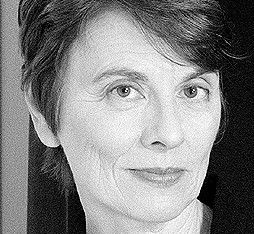 Last Tuesday, April 2, but in 1947, American author, teacher, and social critic Camille Paglia was born. She was brought up in New York by Italian immigrant parents and spent her earliest days on a farm before her educator-father moved the family to more urban surroundings. Paglia graduated Harpur College at Binghamton University as class valedictorian in 1968, afterward attending Yale University as a graduate student until 1972, where she claims to have been the only open lesbian. Her relationship with modern feminism has been prickly at best, vitriolic at worst, in part because she actually praises masculinity: she has picked fights with and been counter-attacked by every leading feminist from the 1990s, with the publication of Sexual Personae (1990) – in which she claims that religion was invented as a means of containing the chaotic forces of human nature – to today, with her lectures, articles and other works, such as Sex, Art and American Culture (1992) and Vamps and Tramps (1994) – in which she reflects on the perils of regulating pornography and the puritanical excesses of the women's movement, as well as coming out as an atheist. That same year, in a speech given at Georgetown University and airing on C-SPAN, she stated “I speak as an atheist” and “I do not believe in god.” In a 1999 Salon.com article, in which she wrote a monthly column, Paglia said, “As an atheist, I acknowledge that religion may be socially necessary as an ethical counterweight to natural human ferocity. The primitive marauding impulse can emerge very swiftly in the alienated young.”
Last Tuesday, April 2, but in 1947, American author, teacher, and social critic Camille Paglia was born. She was brought up in New York by Italian immigrant parents and spent her earliest days on a farm before her educator-father moved the family to more urban surroundings. Paglia graduated Harpur College at Binghamton University as class valedictorian in 1968, afterward attending Yale University as a graduate student until 1972, where she claims to have been the only open lesbian. Her relationship with modern feminism has been prickly at best, vitriolic at worst, in part because she actually praises masculinity: she has picked fights with and been counter-attacked by every leading feminist from the 1990s, with the publication of Sexual Personae (1990) – in which she claims that religion was invented as a means of containing the chaotic forces of human nature – to today, with her lectures, articles and other works, such as Sex, Art and American Culture (1992) and Vamps and Tramps (1994) – in which she reflects on the perils of regulating pornography and the puritanical excesses of the women's movement, as well as coming out as an atheist. That same year, in a speech given at Georgetown University and airing on C-SPAN, she stated “I speak as an atheist” and “I do not believe in god.” In a 1999 Salon.com article, in which she wrote a monthly column, Paglia said, “As an atheist, I acknowledge that religion may be socially necessary as an ethical counterweight to natural human ferocity. The primitive marauding impulse can emerge very swiftly in the alienated young.”
 Although not a darling of the Left, or a Progressive, Paglia more closely allies with radical Libertarianism—“… That is, I oppose intrusions of the state into the private realm – as in abortion, sodomy, prostitution, pornography, drug use, or suicide, all of which I would strongly defend as matters of free choice in a representative democracy”—and often has a kind if condescending word to say about religion, saying in Salon (2001), “Although I'm an atheist who believes only in great nature, I recognize the spiritual richness and grandeur of the Roman Catholicism in which I was raised. And I despise anyone who insults the sustaining values and symbol system of so many millions of people of different races around the world.” Paglia is not an orthodox atheist, by any means, because she often has sympathetic words to say about religion: “Anti-religious sneers are a hallmark of perpetual adolescents” and “I do not believe in God, but I believe God is man’s greatest idea. Those incapable of religious feeling or those (like hard-core gay activists) who profane sacred ground do not have the imagination to educate the young. … Until the left comes to its senses about the cultural power of religion, the right will continue to broaden its appeal” (Vamps and Tramps, p. xx) and “Traditional religions, with all their moral codes, are becoming increasingly attractive in light of the alternatives: the Prozac nation, or heroin, which has come back with a vengeance” (Playboy interview, May 1995). But it was Camille Paglia who said, “Jesus was a brilliant Jewish stand-up comedian, a phenomenal improviser. His parables are great one-liners.”
Although not a darling of the Left, or a Progressive, Paglia more closely allies with radical Libertarianism—“… That is, I oppose intrusions of the state into the private realm – as in abortion, sodomy, prostitution, pornography, drug use, or suicide, all of which I would strongly defend as matters of free choice in a representative democracy”—and often has a kind if condescending word to say about religion, saying in Salon (2001), “Although I'm an atheist who believes only in great nature, I recognize the spiritual richness and grandeur of the Roman Catholicism in which I was raised. And I despise anyone who insults the sustaining values and symbol system of so many millions of people of different races around the world.” Paglia is not an orthodox atheist, by any means, because she often has sympathetic words to say about religion: “Anti-religious sneers are a hallmark of perpetual adolescents” and “I do not believe in God, but I believe God is man’s greatest idea. Those incapable of religious feeling or those (like hard-core gay activists) who profane sacred ground do not have the imagination to educate the young. … Until the left comes to its senses about the cultural power of religion, the right will continue to broaden its appeal” (Vamps and Tramps, p. xx) and “Traditional religions, with all their moral codes, are becoming increasingly attractive in light of the alternatives: the Prozac nation, or heroin, which has come back with a vengeance” (Playboy interview, May 1995). But it was Camille Paglia who said, “Jesus was a brilliant Jewish stand-up comedian, a phenomenal improviser. His parables are great one-liners.”
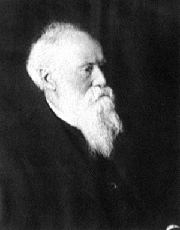 Last Wednesday, April 3, but in 1837, American naturalist, essayist and conservationist, John Burroughs was born. Burroughs developed friendships with Ralph Waldo Emerson, Thomas Edison, John Muir, Walt Whitman, President Theodore Roosevelt and Henry Ford. In his writings he expressed a conception of the universe that one biographer described as “scientific pantheism.” On the strength of his scientific works, the heavily bearded Burroughs won a place in the American Academy of Arts and Letters. In his 1912 book, Time and Change, Burroughs wrote of “the God we have made ourselves out of our dreams and fears and aspirations.” Ever the scientist, he said, “Our civilization is not founded upon Christianity; it is founded upon reason and science.” And elsewhere, “Science makes no claim to infallibility; it leaves that claim to be made by theology.” After World War I his style of writing became passé, only to be rediscovered by the environmental movement for its value in preserving nature. Burroughs once reflected, “When I look up at the starry heavens at night and reflect upon what it is that I really see up there, I am constrained to say, ‘There is no God.’” Elsewhere, Burroughs wrote, “Of the hereafter I have no conception. This life is enough for me.”
Last Wednesday, April 3, but in 1837, American naturalist, essayist and conservationist, John Burroughs was born. Burroughs developed friendships with Ralph Waldo Emerson, Thomas Edison, John Muir, Walt Whitman, President Theodore Roosevelt and Henry Ford. In his writings he expressed a conception of the universe that one biographer described as “scientific pantheism.” On the strength of his scientific works, the heavily bearded Burroughs won a place in the American Academy of Arts and Letters. In his 1912 book, Time and Change, Burroughs wrote of “the God we have made ourselves out of our dreams and fears and aspirations.” Ever the scientist, he said, “Our civilization is not founded upon Christianity; it is founded upon reason and science.” And elsewhere, “Science makes no claim to infallibility; it leaves that claim to be made by theology.” After World War I his style of writing became passé, only to be rediscovered by the environmental movement for its value in preserving nature. Burroughs once reflected, “When I look up at the starry heavens at night and reflect upon what it is that I really see up there, I am constrained to say, ‘There is no God.’” Elsewhere, Burroughs wrote, “Of the hereafter I have no conception. This life is enough for me.”
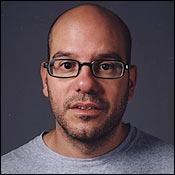 Last Thursday, April 4, but in 1964, American actor and stand-up comedian David Cross was born. Known chiefly for his HBO sketch comedy series “Mr. Show,” and his role as Tobias Fünke in the Fox sitcom “Arrested Development,” Cross was born in Atlanta, Georgia, and after an unsettling childhood began performing stand-up comedy at 17. His style evolved to one blending liberal-leaning political commentary with satire by the time he recorded his first HBO comedy special, “The Pride Is Back.” Cross won an Emmy for his work on “The Ben Stiller Show” in 1993 and co-created the HBO sketch comedy series “Mr. Show” in 1995. His 2002 stand-up recording, Shut Up, You Fucking Baby!, was nominated for a Grammy Award for Best Comedy Album. A non-practicing Jew, during the March 9, 1998, “Politically Incorrect” hosted by atheist Bill Maher on ABC, Cross said “I was born Jewish, but I am an atheist. I don't believe in God.” On Cross’s standup comedy album, Shut Up, You Fucking Baby!, he says, “I’m an atheist, and I was at an early age” and “The Bible truly is one of the funniest books I’ve ever read. ... It was written thousands of years ago, when people were even dumber than they are today. ... It’s absurd to believe in that shit.” In his 2004 standup comedy album, It’s Not Funny, Cross does a bit which begins, “Oh, so I was watching that show … the show where the, uh, there’s the guy on stage and then everybody in the audience believes that he, uh, has contact with the dead and spirits talk to him” – someone in audience shouts, “The Other Side?” “Crossing?” “No, no, no, no,” says Cross, “it was church.”
Last Thursday, April 4, but in 1964, American actor and stand-up comedian David Cross was born. Known chiefly for his HBO sketch comedy series “Mr. Show,” and his role as Tobias Fünke in the Fox sitcom “Arrested Development,” Cross was born in Atlanta, Georgia, and after an unsettling childhood began performing stand-up comedy at 17. His style evolved to one blending liberal-leaning political commentary with satire by the time he recorded his first HBO comedy special, “The Pride Is Back.” Cross won an Emmy for his work on “The Ben Stiller Show” in 1993 and co-created the HBO sketch comedy series “Mr. Show” in 1995. His 2002 stand-up recording, Shut Up, You Fucking Baby!, was nominated for a Grammy Award for Best Comedy Album. A non-practicing Jew, during the March 9, 1998, “Politically Incorrect” hosted by atheist Bill Maher on ABC, Cross said “I was born Jewish, but I am an atheist. I don't believe in God.” On Cross’s standup comedy album, Shut Up, You Fucking Baby!, he says, “I’m an atheist, and I was at an early age” and “The Bible truly is one of the funniest books I’ve ever read. ... It was written thousands of years ago, when people were even dumber than they are today. ... It’s absurd to believe in that shit.” In his 2004 standup comedy album, It’s Not Funny, Cross does a bit which begins, “Oh, so I was watching that show … the show where the, uh, there’s the guy on stage and then everybody in the audience believes that he, uh, has contact with the dead and spirits talk to him” – someone in audience shouts, “The Other Side?” “Crossing?” “No, no, no, no,” says Cross, “it was church.”
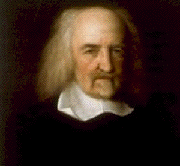 Yesterday, April 5, but in 1588, the year of the Spanish Armada, English philosopher Thomas Hobbes was born. He grew up in an impoverished clerical family in Malmesbury, Wiltshire, England, and was classically educated at Oxford. On the Continent, he got to know such intellectuals as Descartes and Galileo. Caught up in the turmoil preceding the English Civil War, he fled to France in 1640, where he remained until 1651. It was in 1651 that Hobbes saw the publication in London of his greatest work, Leviathan. In it, Hobbes concludes that the natural condition of humanity is a state of perpetual war of all against all. The “social contract” with the sovereign, therefore, was a kind of protection racket. The alternative, he wrote, was a condition of “continual fear and danger of violent death; and the life of people, solitary, poor, nasty, brutish, and short.” In Leviathan and other works, Hobbes never denied the existence of God, but he opposed any positive revealed religion, including Christianity, and most likely did not believe in an afterlife. A bill designed to punish blasphemous literature passed the House of Commons in January 1667, and Leviathan was one of two books specifically targeted. Though the bill never became law, it had the desired effect on Hobbes, who is said to have become more regular at church thereafter. Hobbes maintained, perhaps to duck the charges of heresy, that the sovereign was the best interpreter of God’s will. He was neither the first nor the last freethinker to hide the light of skepticism under the bushel of belief. This caution probably allowed Thomas Hobbes to live past 90 years, in an era when most Europeans died at half that age.
Yesterday, April 5, but in 1588, the year of the Spanish Armada, English philosopher Thomas Hobbes was born. He grew up in an impoverished clerical family in Malmesbury, Wiltshire, England, and was classically educated at Oxford. On the Continent, he got to know such intellectuals as Descartes and Galileo. Caught up in the turmoil preceding the English Civil War, he fled to France in 1640, where he remained until 1651. It was in 1651 that Hobbes saw the publication in London of his greatest work, Leviathan. In it, Hobbes concludes that the natural condition of humanity is a state of perpetual war of all against all. The “social contract” with the sovereign, therefore, was a kind of protection racket. The alternative, he wrote, was a condition of “continual fear and danger of violent death; and the life of people, solitary, poor, nasty, brutish, and short.” In Leviathan and other works, Hobbes never denied the existence of God, but he opposed any positive revealed religion, including Christianity, and most likely did not believe in an afterlife. A bill designed to punish blasphemous literature passed the House of Commons in January 1667, and Leviathan was one of two books specifically targeted. Though the bill never became law, it had the desired effect on Hobbes, who is said to have become more regular at church thereafter. Hobbes maintained, perhaps to duck the charges of heresy, that the sovereign was the best interpreter of God’s will. He was neither the first nor the last freethinker to hide the light of skepticism under the bushel of belief. This caution probably allowed Thomas Hobbes to live past 90 years, in an era when most Europeans died at half that age.
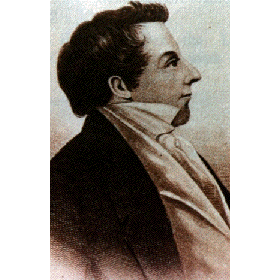 Today, April 6, but in 1830, American con-man and a finder of buried treasures, Joseph Smith, founded the Mormon Church. Coming from two previous generations of superstitious and neurotic seers of visions, Joseph Smith acquired his First Vision of the angel Moroni in 1827. His account says that he was directed where to unearth a new “Gold Bible,” engraved on metal plates in an Egyptian dialect only he would be able to read, with the aid of magical goggles (Egyptologists called the writing closer to gibberish than to Egyptian). Apparently, divine powers only extended so far, because Smith, who never really acquired a knack for reading and writing in English, dictated his translation of the “reformed Egyptian” to a succession of secretaries from behind a curtain. His Book of Mormon (a word he made up) first appeared about 15 years later. The story in it, of a lost Hebrew tribe coming to America and comprising the ancestors of the Indian tribes of his day, does not agree with anything in pre-Columbian American history. That the people depicted in the Book of Mormon were devout Jews is also doubtful, as they seem to have no knowledge of Mosaic law. Also known as the Mormon Church, the Church of Jesus Christ of Latter-Day Saints had many confrontations with U.S. law, particularly over polygamy, which was established by Smith’s own revelation in 1843. In a miraculous occurrence, the revelation was rescinded in 1890, although some Mormons still practice polygamy. Church discrimination against black people ended only in 1978. Retroactive missionary work – or posthumously baptizing non-Mormons (especially Jews) – is still practiced and is still controversial.
Today, April 6, but in 1830, American con-man and a finder of buried treasures, Joseph Smith, founded the Mormon Church. Coming from two previous generations of superstitious and neurotic seers of visions, Joseph Smith acquired his First Vision of the angel Moroni in 1827. His account says that he was directed where to unearth a new “Gold Bible,” engraved on metal plates in an Egyptian dialect only he would be able to read, with the aid of magical goggles (Egyptologists called the writing closer to gibberish than to Egyptian). Apparently, divine powers only extended so far, because Smith, who never really acquired a knack for reading and writing in English, dictated his translation of the “reformed Egyptian” to a succession of secretaries from behind a curtain. His Book of Mormon (a word he made up) first appeared about 15 years later. The story in it, of a lost Hebrew tribe coming to America and comprising the ancestors of the Indian tribes of his day, does not agree with anything in pre-Columbian American history. That the people depicted in the Book of Mormon were devout Jews is also doubtful, as they seem to have no knowledge of Mosaic law. Also known as the Mormon Church, the Church of Jesus Christ of Latter-Day Saints had many confrontations with U.S. law, particularly over polygamy, which was established by Smith’s own revelation in 1843. In a miraculous occurrence, the revelation was rescinded in 1890, although some Mormons still practice polygamy. Church discrimination against black people ended only in 1978. Retroactive missionary work – or posthumously baptizing non-Mormons (especially Jews) – is still practiced and is still controversial.
Other birthdays and events this week—
April 2: French naturalist novelist and author of “J’Accuse,” Émile Zola was born (1840).
April 4: The raid on the YFZ (“Yearning for Zion”) Ranch by Texas Child Protective Services began (2008).
April 4: French Symbolist poet, novelist, and influential critic Remy de Gourmont was born (1858).
April 4: Ignatius Loyola, First Jesuit General, was born (1541).
We can look back, but the Golden Age of Freethought is now. You can find full versions of these pages in Freethought history at the links in my blog, FreethoughtAlmanac.com.

